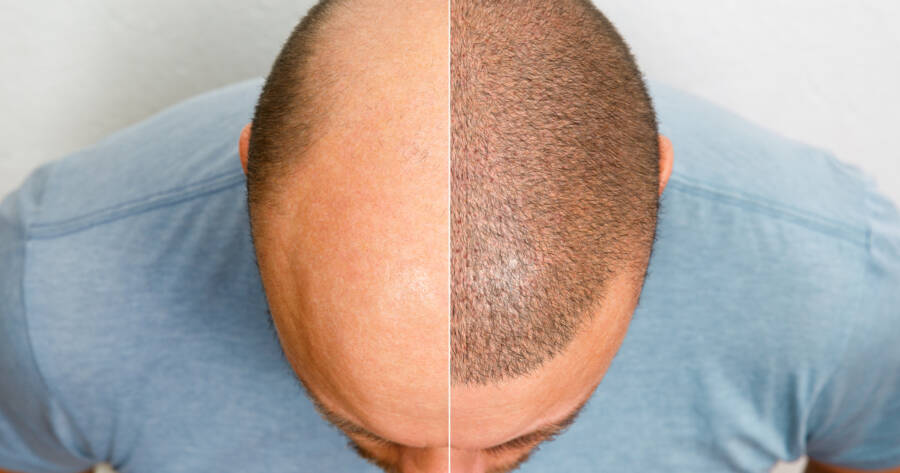Are you considering hair transplant surgery? It’s crucial to understand the risks and advantages before making such an important (and costly) decision. Start a search today to learn everything you need to know about hair transplant surgery.
Hair loss can be a difficult issue to watch unfold, especially when respected solutions are out there. So let’s dive into the world of hair transplantation and explore all the pros and cons from beginning to end.
What is Hair Transplant Surgery?
Hair transplant surgery is a medical procedure that addresses hair loss by relocating hair follicles from one part of your body, usually the back of your scalp, to areas where you’re experiencing hair thinning or baldness. This surgery is typically performed under local anesthesia, ensuring minimal discomfort.
There are two primary techniques used: follicular unit transplantation (FUT) and follicular unit extraction (FUE). Each method has its own set of advantages and considerations, which you should carefully weigh to determine if hair transplant surgery is the right choice for you. Understanding the procedure is the first step in making an informed decision about restoring your hair.
Who is a Good Candidate?
Surgical hair transplants can be a promising solution for both men and women dealing with hair loss. Good candidates typically possess healthy hair growth in other areas that can serve as donor sites for the transplant. Interestingly, the choice between follicular unit transplantation (FUT) and follicular unit extraction (FUE) can vary by gender.
For most women, some hair transplant surgeons recommend the FUT procedure, as it is particularly effective at restoring volume in areas where women often experience hair loss, such as the center of the scalp.1 To determine if you’re an ideal candidate and which method suits you best, consulting with a skilled professional is essential.
Do They Work?
Hair transplants are generally more effective than over-the-counter hair restoration products, but success rates can vary. It’s estimated that anywhere from 10 to 80 percent of transplanted hair will fully regrow within three to four months. Keep in mind that transplanted hair, like natural hair, may thin over time. Factors such as dormant hair follicles and the cause of hair loss can impact the effectiveness of the transplant.2
While these procedures work well for those experiencing natural hair thinning or balding, they may be less effective for individuals with widespread thinning, hair loss due to medications, or thick scalp scars from injuries. Consider consulting with a hair transplant specialist to determine if this procedure is right for you based on your unique circumstances.
Potential Risks and Complications
Hair transplant surgery, like any medical procedure, carries certain risks and potential complications. These can encompass an allergic reaction to anesthesia, excessive blood loss, failed grafts or flaps, infection, loss of sensation on the scalp, and scarring. It’s essential to be aware of these potential risks when considering a hair transplant.
Additionally, you may experience temporary side effects after the procedure, including crusts or scabs, itching, temporary loss of sensation, occasional pain or throbbing, and some swelling or tightness. While these side effects are generally short-lived, it’s crucial to discuss all potential risks and side effects with your surgeon before making a decision.3
How Much Will it Cost?
Hair transplant costs can vary widely, typically falling in the range of $4,000 to $15,000 per session. The final price you’ll pay depends on several factors, including the extent of the procedure, the availability of skilled surgeons in your area, the surgeon’s level of experience, and the specific technique chosen. It’s important to note that because hair transplants are considered cosmetic procedures, health insurance does not cover them.
Additionally, you should factor in potential aftercare medications, which may add to the overall cost. Before making a decision, it’s advisable to consult with a hair transplant specialist to get a more precise estimate based on your unique needs and goals.
Weighing the Pros and Cons
On the positive side, hair transplants are known for their long-lasting results, often providing a permanent solution to hair loss concerns. This can significantly boost self-esteem and enhance your overall appearance, giving you back your natural-looking hair.
However, it’s worth noting that these benefits may come at a cost. Hair transplant procedures can be quite expensive, and they are typically not covered by health insurance. Additionally, achieving the desired outcome may require multiple procedures. It’s crucial to consider these factors and consult with experts to make an informed decision about your hair restoration journey.
Learn More About Hair Transplants Today!
If you’re considering hair transplant surgery, there’s a wealth of information available online. Understanding the nuances, benefits, and potential risks of this procedure is crucial before making a decision.
Continue your research, consult with experts, and explore various clinics to ensure you’re well-prepared and confident in your choice. Your journey to hair restoration begins with knowledge. Keep exploring to make the best decision for your unique needs and circumstances.




